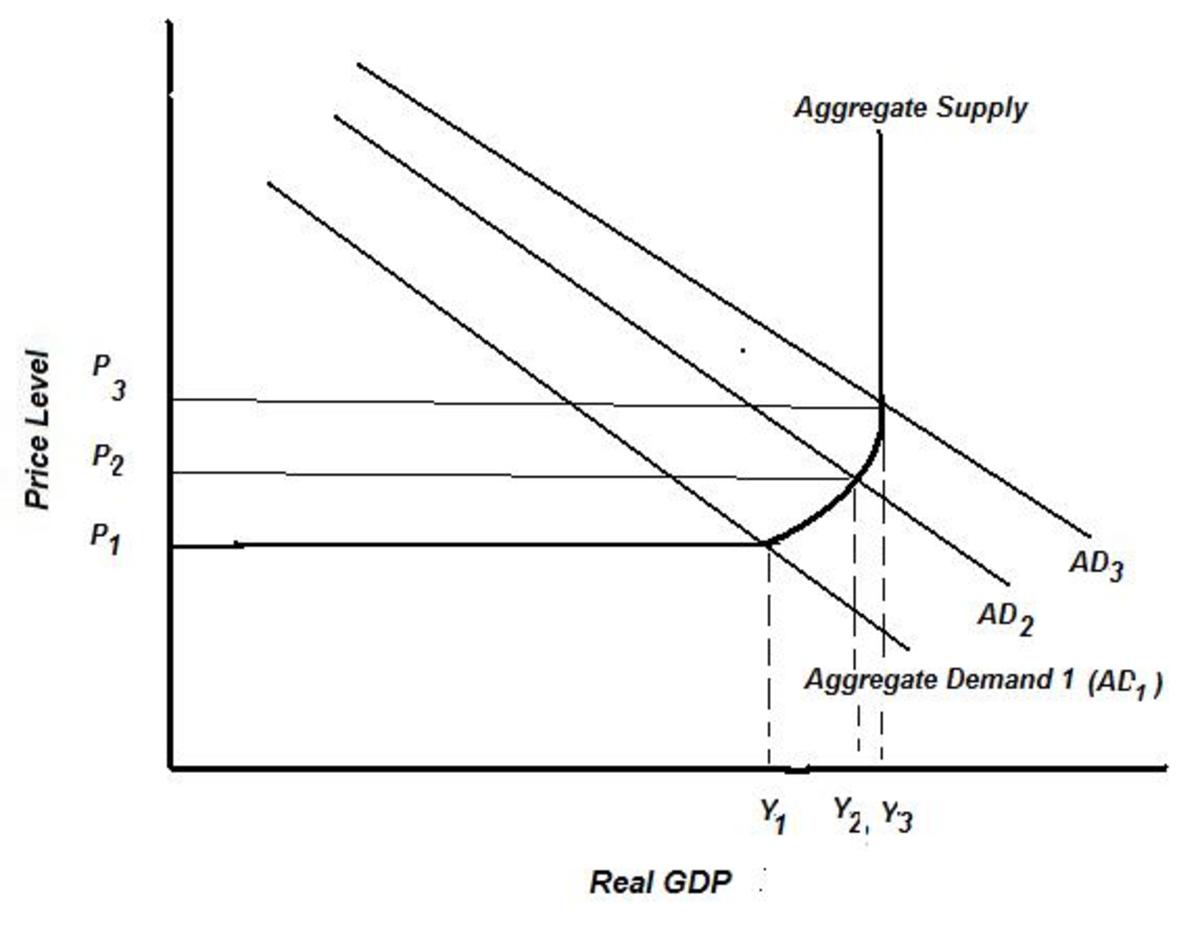The Hidden Tax of Inflation: How it Affects You

The Cost of Inflation
One of the most important aspects in understanding ones future retirement plans and the impact on their lifestyle is the effects of inflation. The definition of inflation in economic terms is the rise in the general level of prices for goods and services. When prices rise, each unit of currency (your money) buys fewer goods and services. This erosion of the purchasing power of your dollars can amount to a hidden tax of sorts. It is widely accepted that the source of high inflation is caused by too much growth in the supply of money. Essentially this means more money chasing after fewer or the same amount of goods and services. What rate of inflation is viewed as healthy can be debated by economists. Yet for the average citizen it is important to grasp how this can affect your future standard of living
First of all it is important to realize that although in the year 2012 many economists in the shorter term are more concerned about the risk of deflation, in the longer term inflation is a certainty. Rates of inflation vary around the world depending on the stability of a currency of a particular nation. Here in the United States we measure inflation in two basic ways. One the Consumer Price Index (CPI) and the other is called Core CPI. CPI measures virtually all goods and services throughout the nation via household surveys. The Core CPI excludes volatile prices for what the Federal gov’t considers to be a more accurate view of longer term inflationary projections by eliminating notably food and energy prices. The historical long term annual inflation rate in the US is about 3.3% over the last century. The historical high was 23.7% in June of 1920 to a record low of about -15.8% (Deflation) during the Great…Great Depression of 1920-1921, (Not the Great Depression of 1929).
What does all of this mean to you the citizen ??? First let’s look at some basic math using historical CPI averages. Let’s assume that 30 years ago in 1982 you had $1,000.00. That same amount of purchasing power would today cost you about $2,400.00. However keep in mind that in the early 1980’s there was a substantial decline in inflation rates from extremely high levels. So if we simply rewind the clock and start from 5 years earlier, the same $1,000.00 in 1977 would require more than $3,400.00 by 2007. Rewind a couple more years to 1975 and 30 years later it’s closer to $3,600.00. Let’s apply this now to a larger purchase. A typical new mid-size sedan today would run on the lower end of pricing at least $20,000.00. If we use our 1975 data, in 20 short years that same car will cost you about $56,654.28.
When and individual retires it has become very common for the average American to live quite a while in retirement. In many cases people are retired for as many years as they worked, if not more. Today 75% of all Americans who live to 65 years of age will go to at least age 92 years old. Based on the actuarial data of increasing life expectancies, pension funds are no longer likely to be as sustainable as they once were. Additionally pension funds as well as social security benefits were created to supplement ones retirement savings, but not to soley provide for it. Because we cannot accurately forecast whether or not we will retire into a substantial spike in inflationary rates as the United States experienced in the mid to late 1970’s it is important to plan adequately. As you reach your retirement years, you no longer likely have an increasing income stream that is keeping pace with inflation. Once you begin to draw down assets you want to be sure that you can maintain the same standard of living and more importantly not run out of money !!! For more information on withdrawal risks read our article on the risk of a negative sequence in investing…
http://landmarkwealth.hubpages.com/hub/The-Impact-of-Distributions-in-Volatile-Markets
This type of planning is a reference to how to treat your retirement savings. Many individuals fear investments due to inherit short term volatility in the stock market and other asset classes. However as you can see, unless you have a substantial discretionary savings with a simple lifestyle, it is extremely unlikely that the average American can maintain the same standard of living without creating some form of an investment portfolio. For information on how to allocate assets, read our prior article on Asset Allocation...
http://landmarkwealth.hubpages.com/hub/The-Importance-of-Asset-Allocation
While it is a fundamental principal to start out an investment portfolio for your retirement more aggressively when you are younger and slowly shift to more conservative instruments as you age, it is unlikely that you can be successful without some form of a longer term strategy that incorporates all asset classes. Investing your retirement assets can be a complex process and it is important to do your own due diligence or seek the advice of a professional whom you trust.
As we move into the future, many in the investment community have serious concerns about the future potential for extremely high spikes in inflation as a result of all of the easing of the money supply by central banks around the globe. The ability to contract that supply will not likely be an easy task. Today the US Federal Reserve Bank has a balance sheet with a leverage ratio of more than 50-1. A strong argument can be made that the US dollar is one of the most heavily leveraged currencies in the world as a result of the recent central banks actions.
Most importantly, don’t discount the power of compounding your investment returns over the longer term. It is the only way to combat the long term certainty of the erosion of your purchasing power. The Bureau of Labor and Statistics provides an online calculator linked to below that can help one understand the impacts of inflation over the years.
http://www.bls.gov/data/inflation_calculator.htm
Suggested Reading
- Should I Collect Social Security Early ???
When the opportunity presents itself to collect Social Security benefits early, there are often numerous factors to consider. The definition of early is typically age 62. The most common answer is… yes you should. However, not always since as with... - Annuities: What You Need To Know
What is an annuity ??? Annuities can generally be summarized as two basic types of insurance contracts. They are either immediate or deferred annuities. Over the years these two types of contracts have been expanded to encompass many different... - What Are The Hidden Costs of Mutual Funds ???
When it comes to analyzing mutual fund fees, you most often have to turn over more than a few stones to find them all. Mutual funds costs can be broken down into three basic categories. Load funds, no-load funds and no-load funds with a transaction.. - The Case for Alternative Investment Strategies
One of the lessons of 2008, and even the more recent market volatility is that portfolio management has become more dynamic. Traditional asset allocation models of equities, fixed income, and cash equivalents may not be sufficient for more growth... - Bonds vs Bond Funds ???
While over the years the community of investment professionals nearly universally agree that most every client should own some form and percentage of fixed income as part of their asset allocation strategy…Over the years there has been an ongoing... - Small Business Retirement Plan Options
Those investors who are self employed understand more than anyone the importance of a return on your investments. Yet part of the reason many of us may be encouraged to pursue the path of self-employment is due to the potential tax benefits. While... - The Impact of Retirement Distributions in Volatile M...
Over the last fifteen years in the financial planning field, the most commonly expressed concern I have heard from a retiree/pending retiree has been…Will I run out of money ??? When examining this question there are many variables to be concerned... - Life Insurance: What You Need to Know
The question of what type of life insurance is most suitable, typically has to do with factors pertaining to an individuals net worth. The first thing one should keep in mind in all forms of insurance is that insurance is a contract of indemnity.... - The Pros and Cons of a Reverse Mortgage
Over the years a number of investors have utilized the tool of a reverse mortgage as a means to provide additional income in retirement. While generally speaking a reverse mortgage is not something one should aspire to attain, it is not the poorest.. - Long Term Disability: Important Aspects
Many of us do not always recognize the potential danger of becoming permanently disabled. The U.S. Census says that you have about a 1 out of 5 chance of becoming disabled for at least a period of time. The average duration for a long term...









